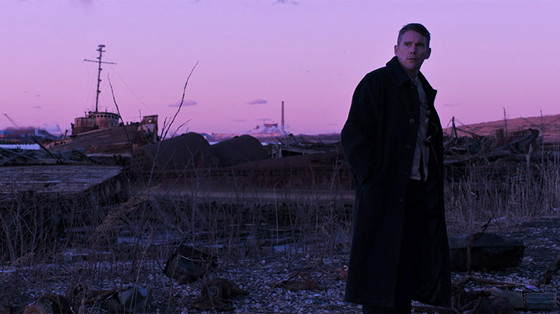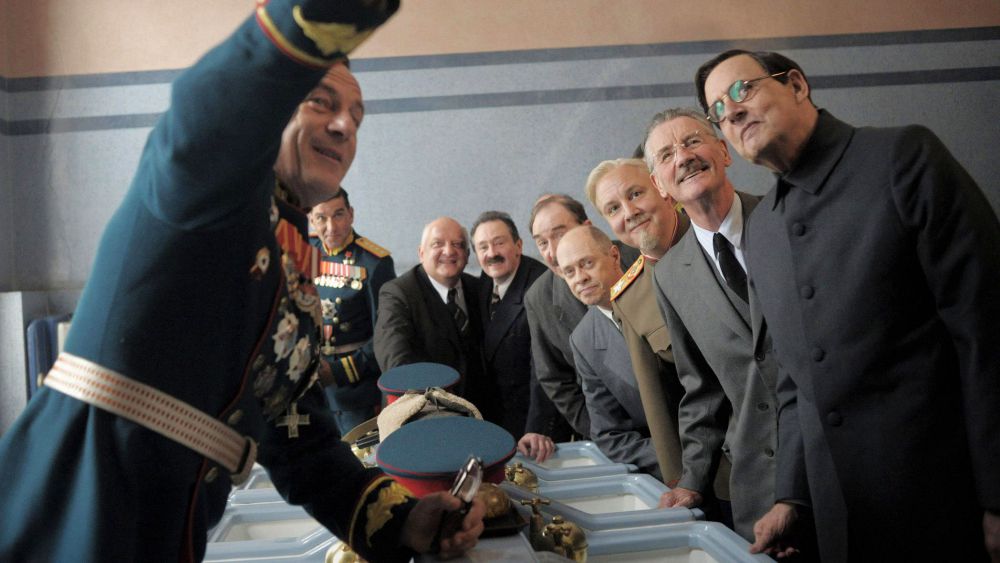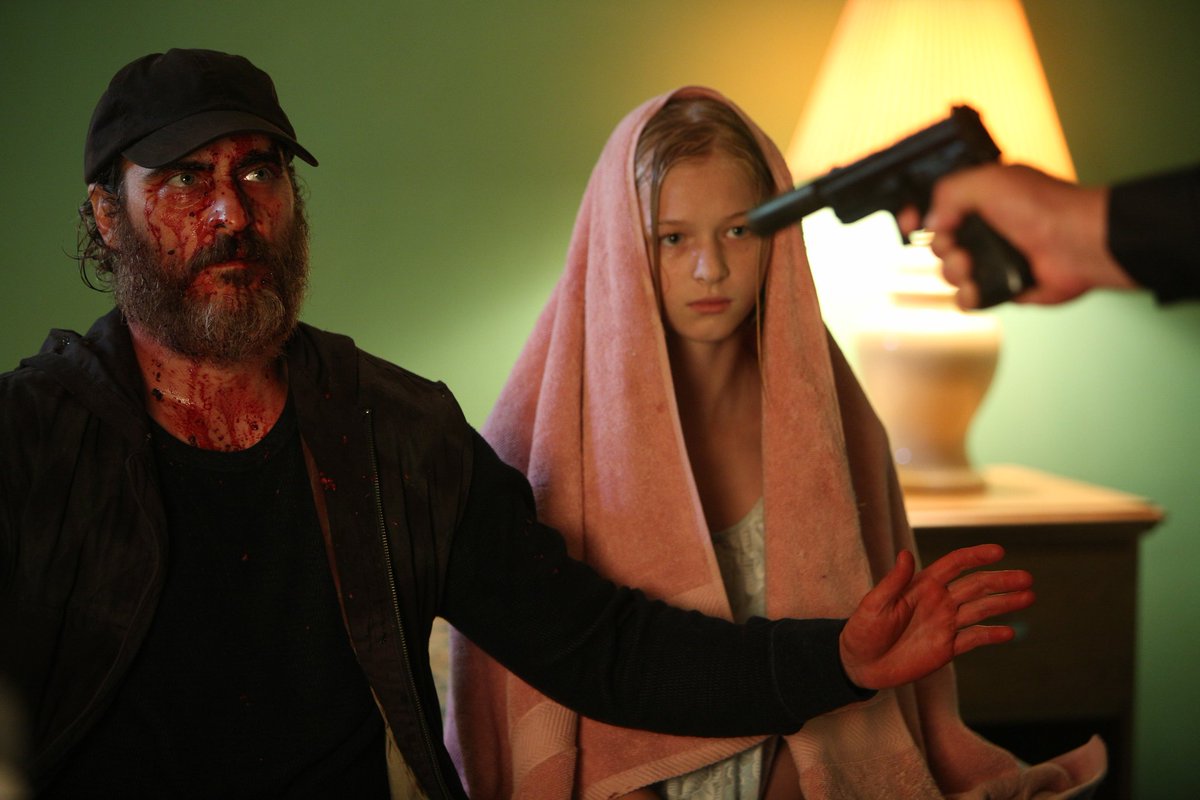5. The Rider

Made by a young director and centered around a non-professional actor portraying a fictionalized version of himself, The Rider is the kind of film the term “independent cinema” was coined to describe.
Accolades started pouring in at the end of 2017, and The Rider actually competed in the Independent Spirit Awards honoring films of that year. That it’s managed to stay in the conversation so long, garnering year-end accolades in both 2017 and 2018, is a testament to what director Chloé Zhao and her lead Brady Jandreau accomplished.
Zhao and Jandreau, as well as members of his family who also appear in the film, tell a story that is often ignored by big budget, Hollywood-based cinema. A young cowboy deals with the fact that an injury has ended his chosen career, and the film presents a tableau of American bodies broken by harsh conditions and brutal traditions. Gone are the heroes and villains of the wild west. These, Zhao seems to say, are the remnants of America’s hallowed fascination with the wild west.
Zhao, a Chinese native who studied film in the US, films the American terrain with a sense of respectful wonder that native filmmakers tend to overlook or flatly insert into frames. Jandreau’s authenticity is unsurprising considering how much of the film is modelled on his life, but his charisma and ease in front of the camera help this story feel fresh and important. The cinematography by Joshua James Richards provides the backbone for one of America’s new great indie classics.
4. First Reformed

Morality and sinfulness have been at the heart of much of Paul Schrader’s work, be it as screenwriter or director. From the height of cinematic greatness that is Taxi Driver to the lows of his Exorcist sequel, Catholic guilt is clearly part of Schrader’s process.
Yet with First Reformed, his old school styled musings on faith, free will, and justice seem more important than ever. Schrader gets such an incredible turn out of Ethan Hawke that First Reformed acted as a career best and return-to-form even though Hawke’s been doing high-profile, career-best work for years. But the film also finds new skills and depths to Amanda Seyfried and Cedric the Entertainer (billed under his real name).
First Reformed is the story of a minister who is challenged and ultimately radicalized by a dangerously depressed radical environmentalist and his pregnant wife. This sets the stage for an examination of what it means to be religious and moral in a landscape defined by corporate interests and a status quo that primarily exists to inconvenience people into giving attention and money.
Schrader approaches all of this with an unshowy determination that lets the story tell itself. The camera hitches onto a color palette that is emphatically crepuscular. Ethan Hawke’s minister, his dwindling parish, and the world in general are in the twilight of the times. Schrader has created the ultimate opposite of and antidote to his most famous creation, Taxi Drivers’ Travis Bickle, the character Schrader made his name on years ago. In doing so, he has created a powerful rebuke of decades of denial and complacency.
3. Leave No Trace

Leave No Trace tells the story of a father and daughter whose life off the grid is interrupted when authorities find and seek to reintegrate them into society. As a piece of American cinema, Leave No Trace uses sweeping nature shots, claustrophobic interiors, and human volatility to tell a story about growing up and growing apart while coping with personal and national demons.
The film is directed by Debra Granik, who has been largely absent from the film circuit since launching Jennifer Lawrence’s career and cementing herself as a powerful cinematic voice with Winter’s Bone. Leave No Trace is a continuation of Granik’s exploration of fringe members of society, and the film is both a step forward for the director and a reaffirmation that she is one of the most interesting voices working in North American cinema.
Ben Foster and Thomasin McKenzie star as a father and daughter living in a public park. Foster’s father character has PTSD, and McKenzie is the daughter who comes to realize that she and her father may have different needs. Like Granik’s previous films, Leave No Trace touches on family, duty, and humanism, but it also has much to say about the connections between individuals and family units, nature, and governmental institutions.
However, it’s the empathy and sensitivity that Granik, her cowriter, and producers bring to the story that elevates it to one of the best independent films of the year. With Peter Rock’s novel Abandonment as a source material and expertly crafted performances from Foster and McKenzie, Leave No Trace is a powerful story about people struggling to find their way in an overbearing and indifferent system.
2. The Death of Stalin

Independent cinema is often thought of as dramatic, pretentious, and too self-serious for its own good. The Death of Stalin is the perfect refutation of these stereotypes. Like the best indie comedies, it has gallows humor and superb timing, while its upfront approach to a historical event leverages the absurdity of Stalin’s passing to make valuable insights about power and governance.
The Death of Stalin is directed by Armando Iannucci, whose political comedies like Veep and In the Loop frame government as a chaotic hotbed of opportunism and ineptness. Ianucci leaves contemporary western politics behind for a satirical look at the power vacuum that followed Stalin’s death. While the decision to have the British cast speak English initially raised eyebrows, the film uses accents of different regions and social classes to inform the characters’ statuses and standings.
The cast is fantastic. Steve Buscemi’s Khruschev is a scheming ball of nerves and tics jostling for power. Michael Palin gives an understated performance as the severely deluded Molotov while Jeffrey Tambor adds another powerful idiot role to his resume. Andrea Riseborough plays Stalin’s daughter as the rare adult in the room, at once horrified and exasperated. Simon Russell Beale’s Beria is a true monster, played with an eely wit.
With so many characters and so much context, Ianucci and company use on-screen captions and musical cues to keep the story moving, and the film effortlessly juggles so many elements and tones until it’s mixed history with comedy and absurdity with brutality. Ianucci finds the humor in the banality of oppression and surveillance, and the result is one of the best comedies of the year.
1. You Were Never Really Here

Lynne Ramsay is one of the greatest living filmmakers in the western world, and You Were Never Really Here is proof of that. The film won Canne’s actor and screenplay awards and was well-reviewed upon release, but this wasn’t enough to stop it from failing at the box office. That is a shame because almost every aspect of You Were Never Really Here stands out as among the best of the year and the decade.
Ramsay’s direction has only become more assured since Ratcatcher, and she brings a level of craft and vision that puts her among the best filmmakers of her time. Joaquin Phoenix delivers one of his strongest performances yet. Phoenix’s penchant to communicate through blankness—it’s what he doesn’t say and where he doesn’t look that tells you about the character—finds a perfect vehicle in this story. Johnny Greenwood’s score is among the best and most buzzed about of the year, and the cinematography is ethereal and haunting.
The sum of these parts is a film that is stunningly beautiful and horrifically brutal all the while dripping with tension. Phoenix’s character is as much time bomb as man, and watching him interact with the outside world—the one that doesn’t exist in the shadows and communicate through violence—is nail-biting in its own way.
Ramsay is always one step ahead of audiences, serving story beats that continue to surprise. A big action set piece is shown on CCTV cameras. The big speeches and anguished melodrama typical of movies about dangerous loners are gone. Here, trauma isn’t a sexy form of motivation that impels dangerous men to be noble vigilantes.
And that is indicative of the style of You Were Never Really Here and why it tops this list. The best independent cinema tells stories that feel different and strange and honest in ways that seem new even if they aren’t. By deconstructing the kind of story that is typically used as garish, borderline-fascist, violence-loving wish fulfilment and stripping it of any romantic or noble notions, Ramsay has created a film for the ages.
As this list shows, independent film is a broad term that represents films of multiple genres, budgets, and filmmaking styles. If you don’t see your top independent film of the year on this list, don’t hesitate to put it in the comments.